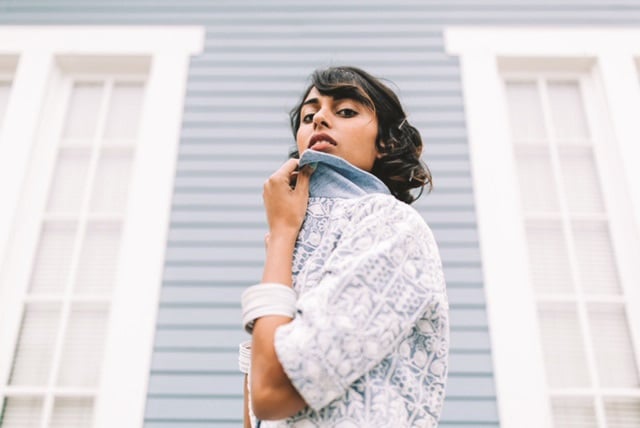Misha Euceph, 27
Company: Dustlight Productions
Title: Co-founder and chief executive
Business: Podcast and audio training company
Location: Venice
Employees: 6
What led you to start this business?
I worked several jobs in audio and freelanced, realizing there was no workplace in the industry that had the Pixar standard, voice or culture. I was lucky enough to work with incredible people — Arwen Nicks, James Kim and Mary Knauf — on two nationally acclaimed podcasts (“The Big One: Your Survival Guide” and “Tell Them, I Am”) while I was at KPCC. They showed me that it’s possible to have an empathetic and respectful culture, to push the boundaries of the audio industry, to prioritize diversity and marginalized voices, to reach critical success and to make money at the same time. But it wasn’t until I was hit by a car as a pedestrian on Sept. 11, 2019, that I understood that I had the power to create and scale that culture and the moment was now.
How did you fund it, and how are you funding it going forward?
I don’t come from generational wealth, so I self-funded the business. The work-for-hire arm of the business (was) largely self-sustaining once the business was up and running. I’m building the business over the next year before considering any funding or investment.
What are the advantages and disadvantages to starting a business in your 20s?
It’s not necessarily being in my 20s but being in my 20s and being a women who looks young. I had to spend a lot of time before starting this business building credibility. I was declared Adweek’s Producer of the Year for 2019. My work made it to nine best-of lists of the “Best Podcasts of 2019.”
How has the pandemic impacted your business so far?
The pandemic has forced me and my team to come up with far more creative solutions — like mailing podcast kits to guests, helping people build home studios remotely, and overcoming audio quality issues with newer software and better sound design and music. It also forced me to build resilience into the infrastructure of my business. We pivoted to online training even though we weren’t planning to launch the training arm until 2021.
Where do you go for advice regarding your business?
I obsessively research the entrepreneurs whom I admire — Yvon Chouinard, Steve Jobs, Oprah — and ask my team and clients questions about what’s working and what’s not working for them. I’m lucky to have a dad who is an entrepreneur who can advise me on the financial aspect of the business, and friends and other podcast producers who’ve started their own shops.
Does social responsibility play a role in your business?
Yes! My entire business is built on the ideas that plague my generation. Elevating the voices of people of color, queer and trans folks, and women without making stories all about their identity. My company is making it not only possible but also easy for minorities to have a platform, to have the skills they need to make blockbuster and critical hits.
Do you feel that your business is particularly tailored to the Los Angeles market?
I think my business is particularly tailored to the Los Angeles market because we’re trying to make audio of the kind of production quality of the most famous and revered Hollywood movies. We’re working with huge public figures and celebrities, to whom we wouldn’t have access in other cities. We’re working with composers and sound designers to whom we wouldn’t have access in other cities.
What do you do for fun?
I recently got into gardening and baking sourdough — as did every millennial. I run, exercise, write and watch psychotic amounts of TV. When you’re making podcasts, you want to consume everything but (podcasts).
Keep reading the 2020 edition of the 20 in Their 20s special report.

